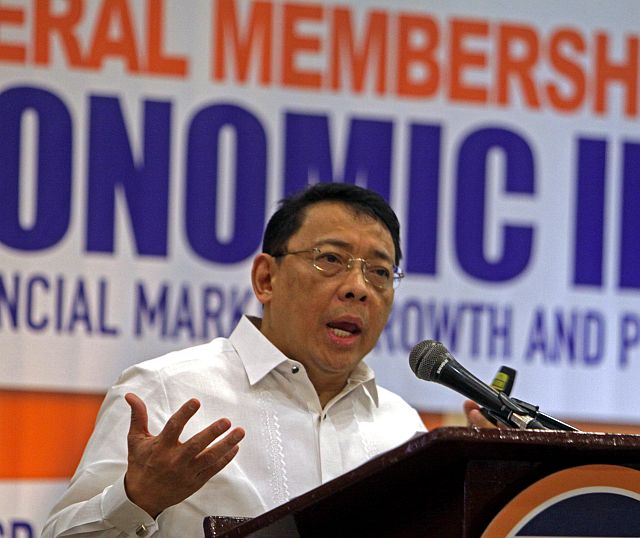
Diwa Guinigundo, Bangko Sentral deputy governor. (CDN PHOTO/LITO TECSON)
Government expects a flat growth in cumulative cash remittances from overseas Filipino workers (OFWs) in the next two years amidst falling oil prices and volatility in the Middle East, a Bangko Sentral ng Pilipinas official said.
Diwa Guinigundo, Bangko Sentral deputy governor, said remittances are expected to not fall below $28.5 billion, the full-year remittances reported by the central bank in 2015.
Government is still targeting an increase of four or five percent in remittances this year, he said.
Guinigundo said an updated projection will be released in April.
Remittances last year went up nearly five percent to $25.8 billion from $24.62 billion in 2014.
Guinigundo said remittances increased despite the lesser foreign job orders.
JOB ORDERS
Citing Philippine Overseas Employment Administration (POEA) records, he said only four out of 10 foreign job orders pushed through. POEA said there were around 770,000 foreign job orders last year, but only 44 percent were realized.
“So kahit pa kalahati lang yung job orders natin (even though we only have half of job orders), we will still continue to grow at least a flat growth for remittances in 2016 and 2017,” he added.
Reports of retrenchment among OFWs are still mainly anecdotal, with no official data to back them up, Guinigundo said.
“It is true that about 1.5 million Filipinos have been reported in the press that may stand to be disemployed. But again, we asked our various consulates and embassies abroad, with respect to the veracity of the reports, they came out saying that most of these are anecdotal,” he said.
He added that it is also likely that despite the oil price situation in the Middle East, OFW employment will not be largely affected.
“Many workers are no longer in production sites, and are not directly affected by lowered oil prices,” he said.
Many OFWs now work abroad as highly skilled professionals in medical care and other services-related fields, such as architecture and engineering.
NEW MARKETS
Another factor that the executive cited is the emergence of new markets for Filipino workers outside the Middle East.
“In short, if ever there will be a recession, companies in the Middle East will not be able to immediately lay off our Filipino workers,” he said.
“Yes, the Middle East seems to be a problematic area, but there are also other markets that could still be tapped to make sure that we are able to sustain the momentum of remittances,” he added.